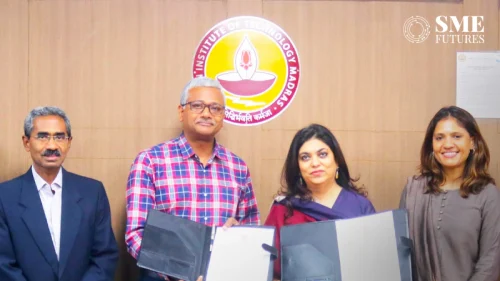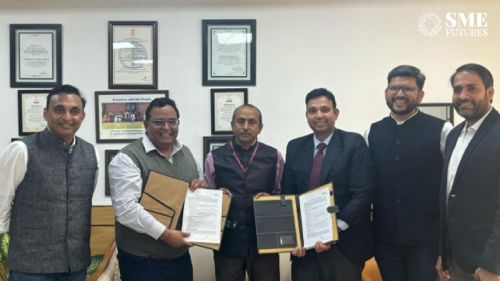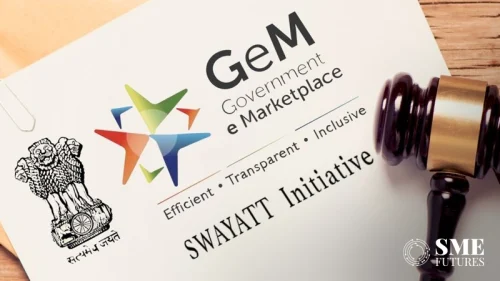On World Sleep Day 2024, ResMed, a global provider of sleep apnea treatment devices revealed a survey findings from its annual sleep study, which highlighted the global issue of insufficient sleep, with an average of 6.8 hours. The findings highlight the vital importance of improving sleep health for overall well-being.
The 2024 ResMed Sleep Survey, an annual ResMed property that brings insightful narratives around sleep health, was the largest and most in-depth undertaken by the company with 36,000 respondents across 17 markets surveyed this year. The survey shed insight into perspectives, habits, and behaviors when it comes to sleep health.
A Country Neglecting its Sleep Hygiene
In 2023, 84% of Indian respondents were the most satisfied with the quantity and quality of their sleep, however, alarmingly in 2024, we noted that only 27% of the Indian respondents are getting a good night’s sleep across both quality and quantity every day of the week highlighting the need to educate the public about sleep hygiene.
- And it’s not just about the quality of sleep – out of 5,000 Indian respondents, the survey found that while 44% consider 8-8.99 hours of sleep are a good night’s sleep, only 29% actually sleep for 8-8.99 hours a night, revealing a country that is deprived of good sleep and yet not making it a priority.
There is a need to highlight how sleep is a crucial pillar of health and chronic sleep deprivation can have an impact on the everyday functioning of individuals.
“It is crucial to discuss the unrecognised crisis of sleep health and how the lack of sleep is contributing to the healthcare burden in India. ResMed continues to lead the charge in advancing sleep awareness across India while empowering individuals and the medical fraternity with innovative digital health solutions. Our commitment to developing cloud-connected tools remains unwavering as we strive to provide comprehensive sleep care to those suffering from conditions like sleep apnea and COPD,” said Sandeep Gulati, General Manager, South Asia, ResMed. “We believe everyone deserves the opportunity to sleep, breathe, and live better.”
Clocking Out but Not Switching Off
The top cause of disrupted sleep in India is work-related stress, with 42% of citing it as what keeps them up at night. This is prevalent across the various regions with 42% from North India, 45% from the Northeast, 49% from Central India, 42% from East India, 43% from the West and 38% from South India indicating work stress as the reason they struggle to fall asleep. Almost 90% of respondents (with a history of sleep apnea) agree that good sleep impacts your ability to be productive at work highlighting how adequate sleep is fundamental to general wellbeing, favourably impacting productivity.
ResMed Sleep Survey 2024 also indicated the following data points:
Sleep Tracking:
68% of individuals in India actively monitoring their sleep patterns, with 47% using an application on their phones to track their sleep.
Reasons impacting sleep health:
Anxiety (29%)
Obesity (16%),
Breathing difficulties (15%)
Heart health (8%)
Breathing difficulties affect 22% of Indians who have a history of sleep apnea when it comes to their ability to sleep.
Diagnosed with sleep apnea:
48% started or are due to start treatment
18% have not started the treatment
20% began the recommended treatment but did not continue it
14% decided to trial my own methods to combat sleep difficulties.
Consult Doctors and Not Screens for Sleep Health
The survey indicates that 49% of Indians are very likely to look up information regarding symptoms they are experiencing if they interfere with their ability to sleep. Remarkably, even though 69% of Indians think that doctors are a reliable source of information about sleep health, a substantial 54% have not sought consultation with a physician.
“Long-term sleep deprivation could result in an increased risk of cardiovascular events, compromised immune system, and even road traffic accidents.” said Dr Sibasish Dey, Head, Medical Affairs, South Asia, ResMed. “Our survey results underscore a pressing demand for more awareness and education on comprehensive sleep health. As a member of the medical fraternity witnessing the impact of sleep disorders on individuals, we recommend a greater focus on creating awareness and testing for sleep disorders, as it would lead to better health outcomes. As an additional course of action, sleep health should be advocated for and included in policies to provide it the importance and due consideration it requires in Indian healthcare.”
In India, around 104 million people potentially suffer from Obstructive Sleep Apnea (OSA), a chronic disease in which the muscles of the throat relax to the point of collapse, restricting airflow and casing the sufferer to stop breathing repeatedly throughout the night. Despite the prevalence of the condition, there is still a significant challenge around the lack of awareness. This results in prolonged suffering without proper diagnosis and treatment.











